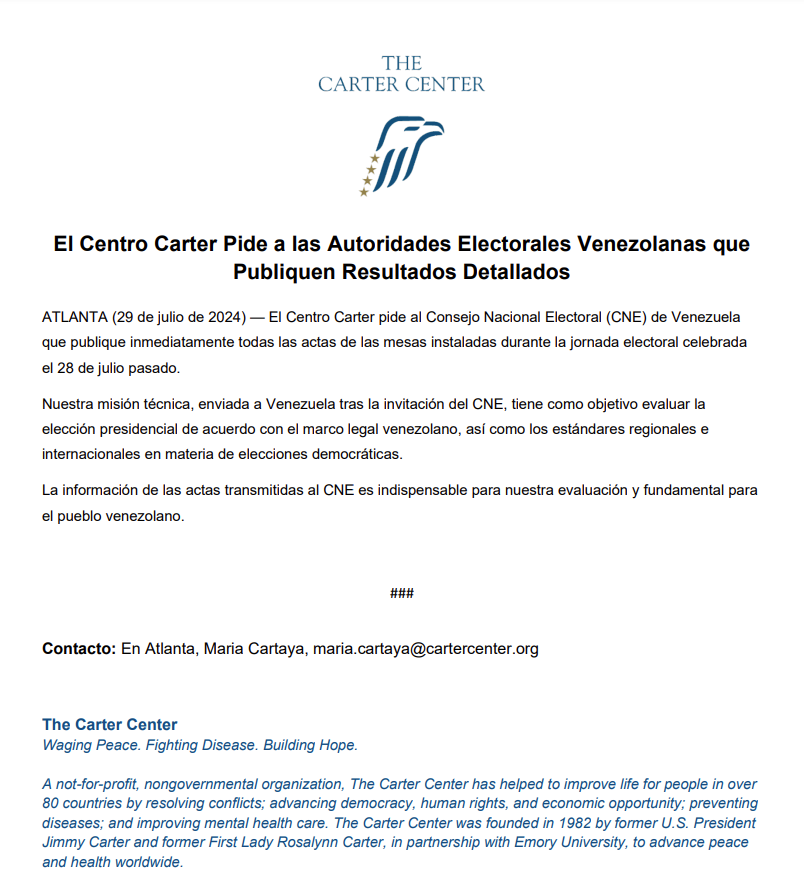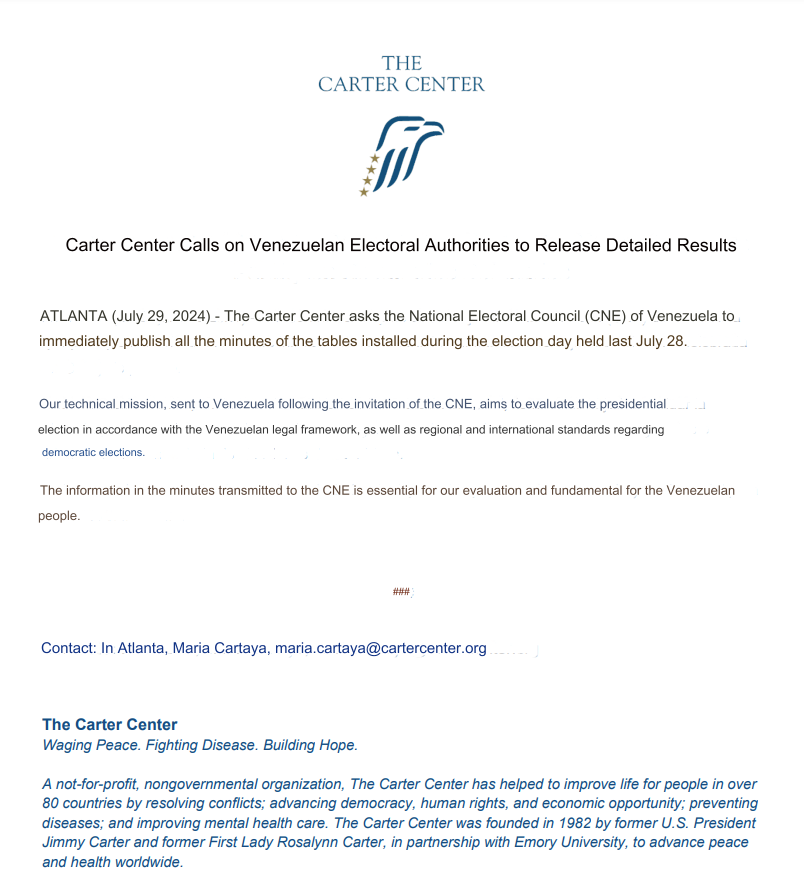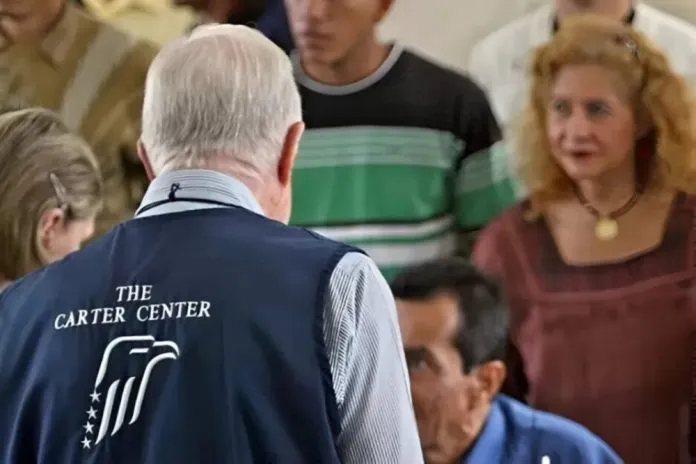Introduction
In a significant development following Venezuela’s recent presidential election, the Carter Center has formally requested that the National Electoral Council (CNE) immediately publish the voting records from the election. This request comes as part of the Center’s mission to observe and assess the electoral process, which concluded with Nicolás Maduro being declared the winner. The Carter Center’s call highlights ongoing concerns about electoral transparency and the need for comprehensive evaluation.
Background of the Election
Presidential Election Overview
The presidential election held on Sunday, in which Nicolás Maduro was declared the winner, has been met with mixed reactions. Maduro, who has been in power since 2013, faced off against opposition candidate Edmundo González Urrutia. The election, as announced by the CNE, saw Maduro receiving 51.2% of the vote. This result has been contested by both Venezuelan opposition groups and a significant portion of the international community.
Role of the Carter Center
The Carter Center, an American organization founded by former U.S. President Jimmy Carter in 1982, was invited to Venezuela as an international observer for this election. The organization’s mission is to monitor and evaluate elections in accordance with Venezuelan legal frameworks as well as regional and international democratic standards.
Carter Center’s Request for Transparency
Importance of Voting Records
On Monday, the Carter Center issued a statement emphasizing the necessity of releasing the detailed voting records. According to the Center, these records are “indispensable” for completing their assessment of the presidential election. The organization has stressed that access to these records is crucial for ensuring the credibility and transparency of the electoral process.
Observational Objectives
The Carter Center’s mission in Venezuela is designed to evaluate the election based on legal and democratic standards. Their observations include not only the conduct of the election itself but also the procedural and logistical aspects that impact the overall fairness and integrity of the process.
Official Reactions and Statements
CNE’s Declaration and Controversy
The CNE, in its official declaration, proclaimed Nicolás Maduro as the winner of the presidential election. Despite this announcement, the result has faced significant scrutiny. The opposition, including key figures like María Corina Machado, has denounced the results, alleging electoral fraud and irregularities.


The CNE’s failure to immediately release detailed voting records has further fueled skepticism and criticism. The absence of this crucial data has led to accusations that the election results lack credibility.
U.S. Government’s Critique
On the same day, the U.S. government criticized the Venezuelan administration’s handling of the election results. A high-ranking U.S. official remarked that by declaring a winner without the supporting detailed voting records, the Venezuelan government had undermined the credibility of the announced results.
Carter Center’s Mission and Observations
Previous Observations and Expertise
The Carter Center has a history of observing elections in Venezuela, bringing a wealth of experience to their current mission. For the recent election, the Center deployed 17 electoral experts across three Venezuelan states and the capital city, Caracas. This deployment reflects the organization’s commitment to a thorough and comprehensive observation process.
Memorandum of Understanding
According to Jennie Lincoln, head of the Carter Center’s mission, the organization has a memorandum of understanding with the CNE. This agreement ensures the Center’s access to all aspects of the voting process, including the ability to travel throughout the country and engage with both media and citizens. The memorandum is intended to guarantee transparency and facilitate a thorough evaluation of the electoral process.
Implications for Electoral Integrity
Impact on Public Trust
The call for the immediate release of voting records is not just a procedural request but also a significant measure to uphold public trust in the electoral system. Transparent and accessible voting records are essential for verifying the accuracy of election results and maintaining confidence in democratic processes.
Potential Outcomes and Next Steps
The response to the Carter Center’s request will likely influence the broader perception of the election’s legitimacy. If the CNE complies with the request and releases the detailed records, it could help address some of the criticisms and restore a measure of confidence in the electoral process. Conversely, continued delays or non-disclosure may exacerbate doubts and lead to further scrutiny from both domestic and international observers.
Conclusion
The Carter Center’s call for the immediate release of voting records from Venezuela’s recent presidential election underscores the ongoing challenges and concerns surrounding electoral transparency. As the Center continues its evaluation, the response from the CNE and the subsequent actions will play a crucial role in shaping the discourse on electoral integrity and democratic governance in Venezuela.


